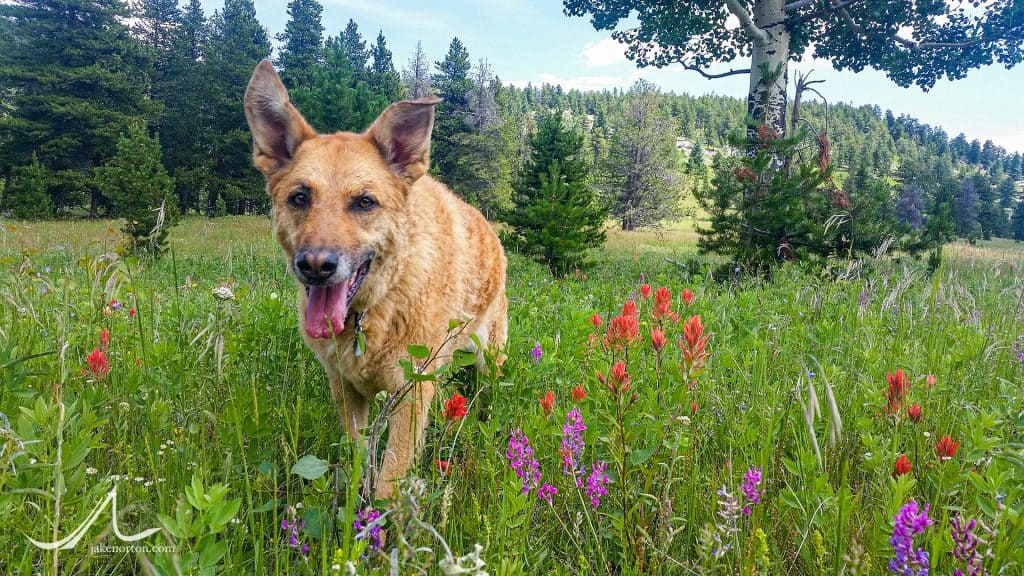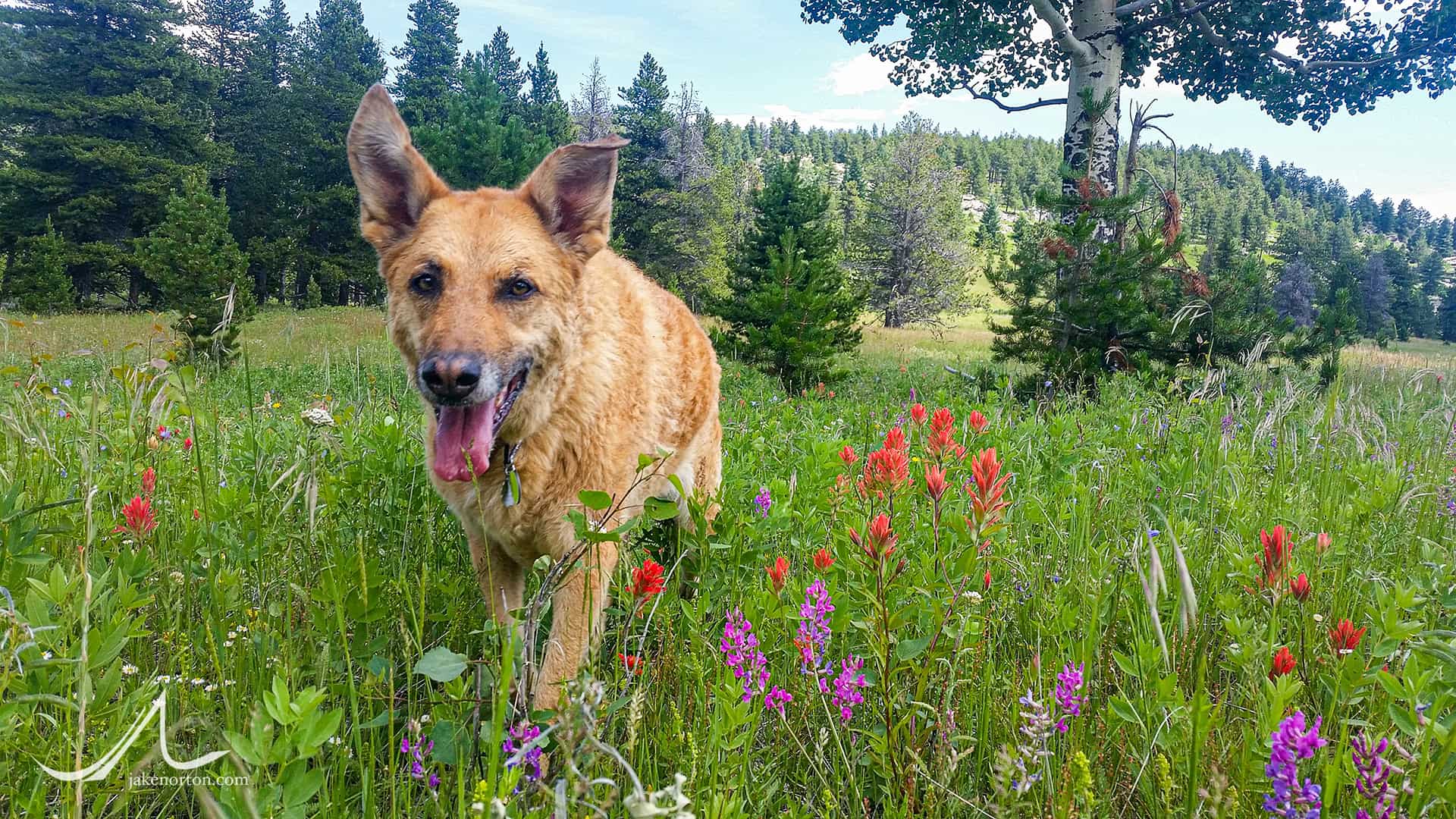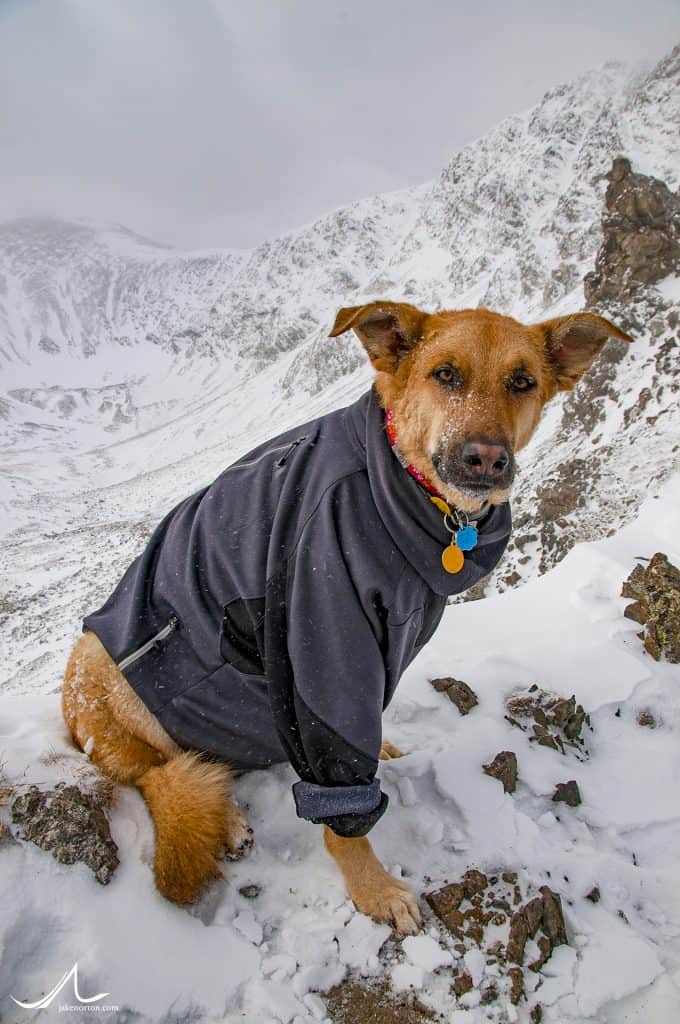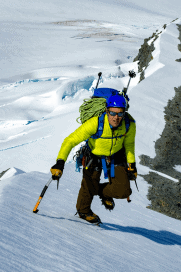She looked at me excitedly, through age-clouded eyes, ears standing tall with enthusiasm for activity her old body no longer allows.
“Sorry, girl,” I said, and she registered my emotion and conveyed it to the rest of her body, eyes dimming, ears slumping, chin resting back on the bed. “You can’t do this one anymore. But, I’ll get you out for a swim this afternoon.”
She’s climbed the Kelso Ridge on Torreys Peak before. She’s actually done it twice — once in summer and once in winter. She’s traversed the whole cirque in fact, romping the rarely-trodden ridge connecting Torreys and Grays to Edwards and on to McClellan. She’s bushwhacked drainages throughout the Rockies as I looked for ice and she sniffed for elk, both chasing our own ethereal dreams and instinctual ambitions.
She’s also seen a good chunk of the world, with adventures in 23 states (plus Puerto Rico) and 10 different countries. She’s doggy-paddled the Pacific and Atlantic, the Adriatic and the Caribbean. Her paws brought her up South Table Mountain at 12 weeks and Crna Glava at 719 weeks. She’s been kicked by an elk and attacked by a Šarplaninac, run circles around a rattle snake and patiently allowed puppies to run circles around her. She’s sniffed the streets of Paris and Podgorica, Boulder and Bolzano, Raton and Rincon. She’s helped raise two children and teach two adults, and done it all with patience, loyalty, and profound love.
But now, at 14–1/2, her adventures are starting to wane. The signs of age — long evident in her muzzle — have crept into her body. An arthritic spine has withered her hind legs to wobbly shadows of their once-strong selves, while the years have clouded her eyes and muffled her hearing; smell is her primary sensory engagement tool these days. Add to that growths on her spleen — likely Hemangiosarcoma — and we know the awful truth: her days on earth, her days with us, are numbered. It’s a reality we all hate to admit. As Mary Oliver put it: “Dogs die so soon… It is almost a failure of will, a failure of love, to let them grow old — or so it feels. We would do anything to keep them with us, and to keep them young. The one gift we cannot give.”
Impermanence sucks. It’s that most present and most pernicious of forces, the one constantly needling us with the reminder of here today, gone tomorrow, that all we love, all we hold most dear, will one day — perhaps soon — be but wisps of memory. It hurts to even contemplate, let alone accept.
But, impermanence is also beautiful. (And, no, not just because that which we hate will also be gone, perhaps soon.) It’s beautiful because without it — without the painful and tragic knowledge that all we love, all we cherish, all which brings us joy will someday end, die, decay — we could not know love, true love, love in the here and now, love of the moment, love that accepts this time, this place, this memory, this experience. We love most that which will disappear, and by accepting impermanence as the catalyst for love in the first place, we can learn to live not in the future or past, but in the present, like a dog. Fiona Apple put it well:
I know that she’s not sad about aging or dying. Animals have a survival instinct, but a sense of mortality and vanity, they do not. That’s why they are so much more present than people. But I know she is coming close to the time where she will stop being a dog, and start instead to be part of everything. She’ll be in the wind, and in the soil, and the snow, and in me, wherever I go.

Pema’s taught me much over the years, but that — living in, and loving, the present — is perhaps her best lesson. Even with some inkling of her time coming to a close, she’s still up for the moment, mustering all the exuberance she can for a swim in the creek, to chase a rock in the meadow, to scarf down a good meal, or to fall asleep under the loving affection of her family. There’s sadness — or perhaps simply melancholy — about not being included in the bigger adventures anymore, but still ample joy in the little things, the moments that make up the vast carpet of life. Pema isn’t sad about the end being near — she’s likely not aware that it is — she just wants to live life now, be present, love and be loved. And that she does, and has done. Again, Mary Oliver from Dog Songs:
LUKE
I had a dog
who loved flowers.
Briskly she went
through the fields,
yet paused
for the honeysuckle
or the rose,
her dark head
and her wet nose
touching
the face
of every one
with its petals
of silk,
with its fragrance
rising
into the air
where the bees,
their bodies
heavy with pollen,
hovered —
and easily
she adored
every blossom,
not in the serious,
careful way
that we choose
this blossom or that blossom —
the way we praise or don’t praise —
the way we love
or don’t love —
but the way
we long to be —
that happy
in the heaven of earth —
that wild, that loving.



